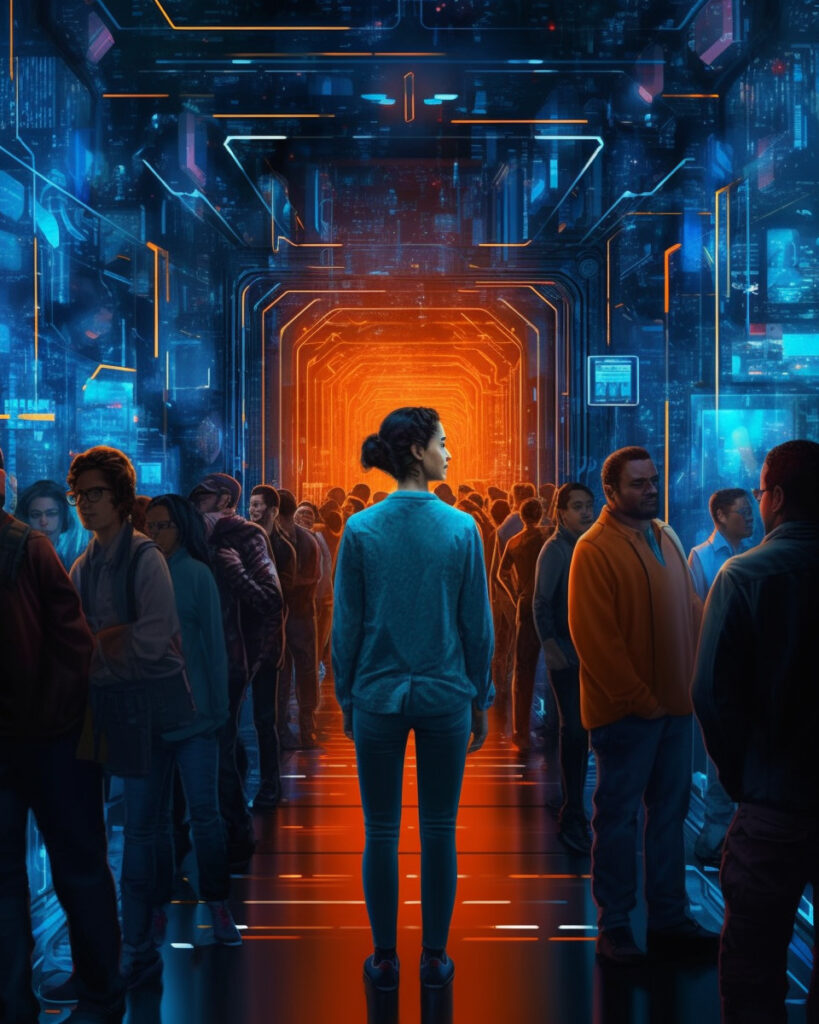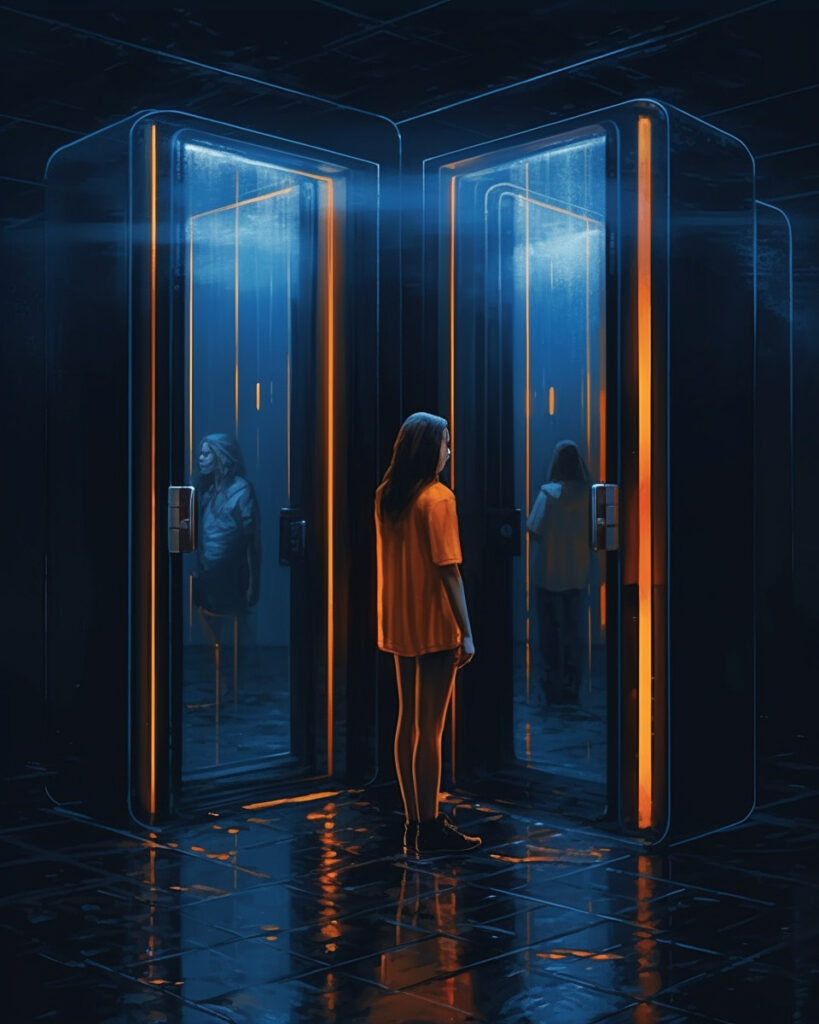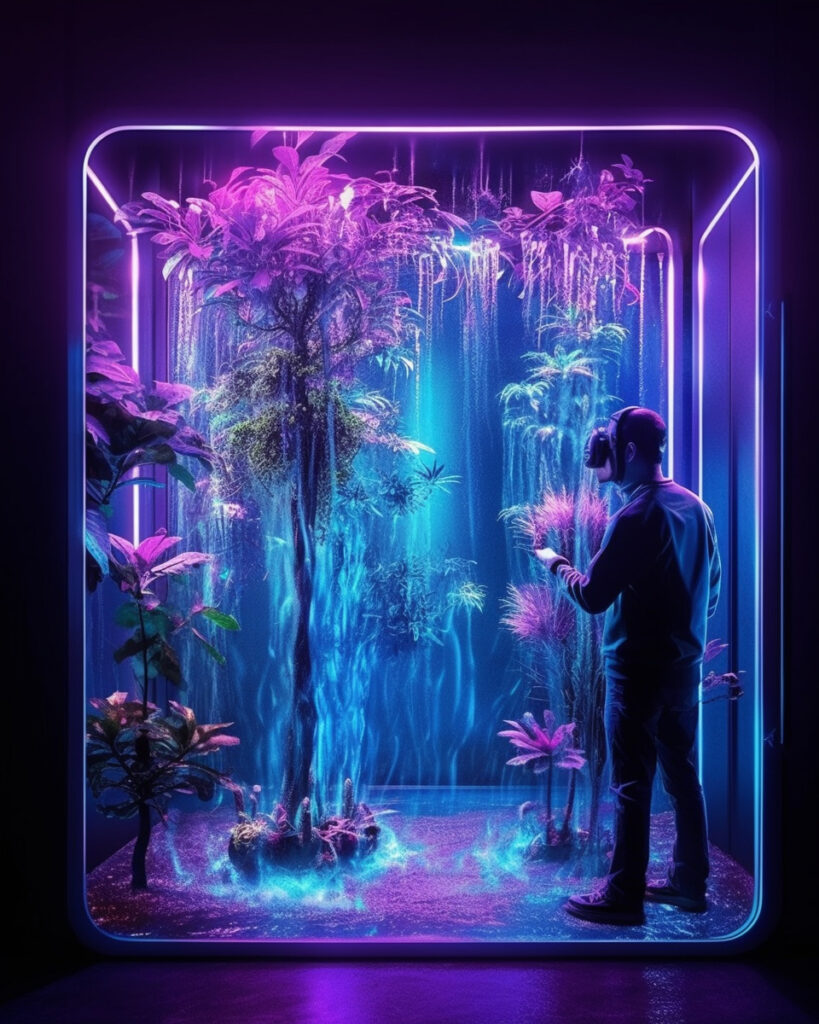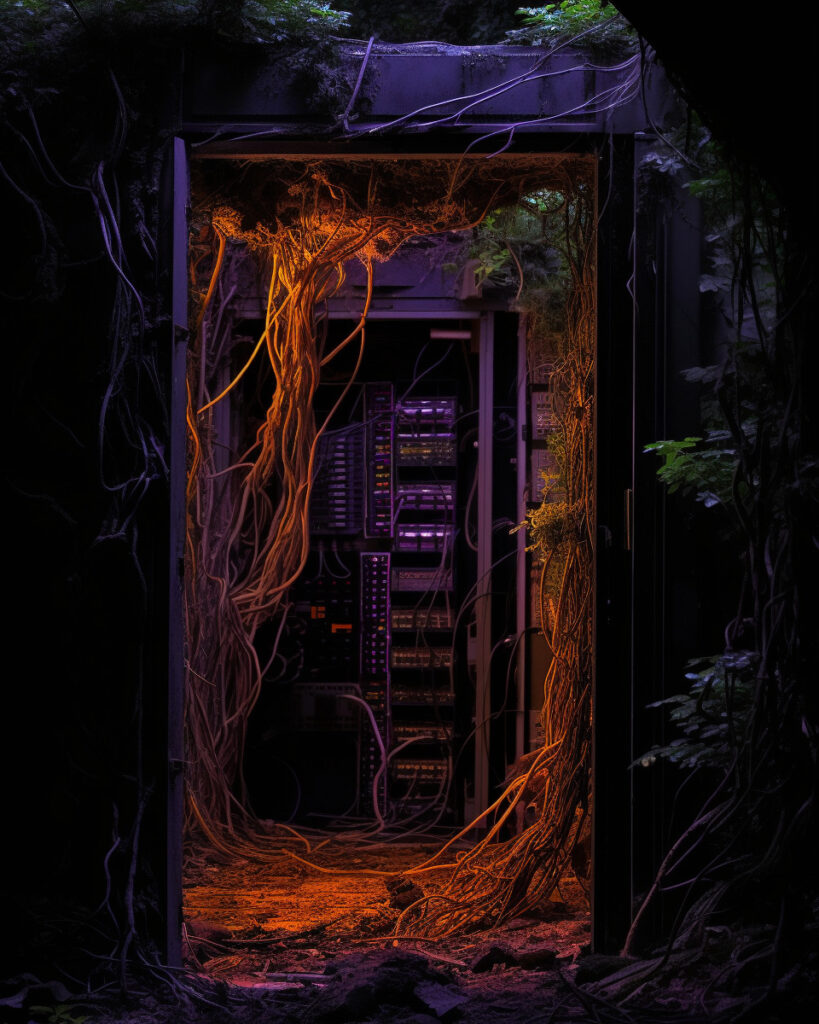1. SOCIALLY, ETHICALLY AND ECOLOGICALLY RESPONSIBLE TECHNOLOGY
It was time for technology to move from the hands of prying private platforms to the masses for it to reveal its true usefulness for society. The decentralised infrastructure of the web was born. Locally regulated, cooperative and decentralised organisations replaced the big social media corporations to create digital environments fostering sane and humane interaction. New technologies were scrutinised with strict evaluation tools and ethical framework lenses before they could make it to the market. Psychological and data sciences were used to promote learning, the tools of algorithmic curation were used to protect our attention from being degraded. The ethics around technological developments became part of daily discussions.

2. RELATIONAL KNOWLEDGE AND SKILLS
Once the importance of relational knowledge and skills within the society was recognised, the industrial approach of education was left behind. A life long learning system with relational knowledge and skills at its core, got developed, inspired by the many ethnic and cultural perspectives that exist in our cities. There are courses in relational thinking, community building, self-knowledge, critical digital skills, tolerance and solidarity accessible for everyone. This new learning system promotes the collective way of being.

3. RELATIONSHIPS AFTER GROWTH
Tired of the pursuit of growth, the value of good relationships got acknowledged and gained a bigger space in how time and resources get allocated. Countries started measuring their welfare through the state of wellbeing instead of their economic wealth. On a cultural level, we moved beyond the aim for growth, progress and productivity and define success by the amount and quality of relationships we have and sustainable prosperity. Profiling ourselves and showing off with our achievement on social media became counterproductive, since connection is valued more than competition. Artificial intelligent machines filled in many jobs and basic income got introduced. The quality of relationships and free time is what gets valued more than numbers.

4. CRITICAL PHYGITAL RELATIONSHIP BUILDING
We shifted from spending time with mostly avatars to the conscious development of a network of people. People with whom we have deep relationships, based on online or offline face-to-face interaction. After several trials and errors in the virtual world, we now have the knowledge on how to navigate relations. We still spend time as avatars in the virtual world but before going deeper we unmask ourselves to know each other better. Friends can be virtual and real as long as there is affection, solidarity and a safe space. Long distance relationships are common thanks to technology. Although the physical and digital world are connected seamlessly and combined form the reality, the limitations of the digital world are clear.

5. REGAIN CONFIDENCE IN OTHERS AND PUBLIC AUTHORITIES
Influencers, brands, companies, politicians bear legal responsibility for negatively misleadingly and influencing people. Several rules, committees to build policies of radical transparency, blockchain techs, and fact-checking systems are designed to control them. Together with a more fundamental trust in “others”, this brought a new way of perceiving the institutions. Political participation and democracy is revived. On a personal level, people are more critical and free from true-false thinking and speech. The need to express personal opinions turned into giving space to disagree.
6. SOCIAL IMAGINARY AROUND CARE
A low threshold holistic health system has emerged and provides mental support where needed. Methods are very varied, from experiential and multi-sensory healing practices to daily support of AI bots. The focus is to help people have a deeper understanding of and a better relationship with themself, others, friends, intimate relationships, family, community, society… Mental care is a daily routine and there are no taboos around it anymore. There is an awareness that all emotions are relevant, that there are no instant solutions, that we cannot be happy all the time, that we should not change others and that maintaining healthy relationships is hard work.

7. ECOLOGY OVERTAKES DIGITAL
Due to ecological reasons, people only have a limited amount of hours on the internet. It is not an issue as it helps us value real-life interactions and encounter differences that in return help us to have healthy relationships possible anywhere. The ethical and ecological production standards around technology are strictly watched and the use of digital technology is highly taxed and limited.







